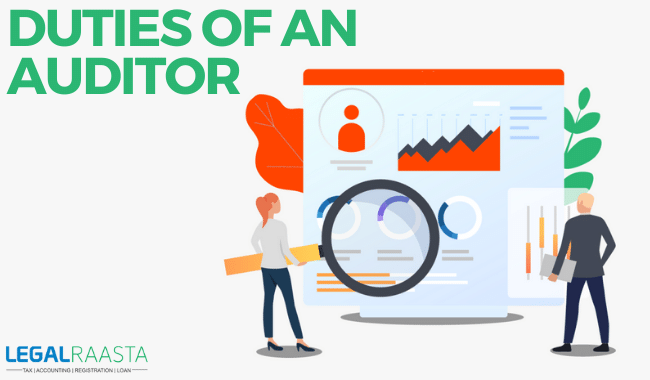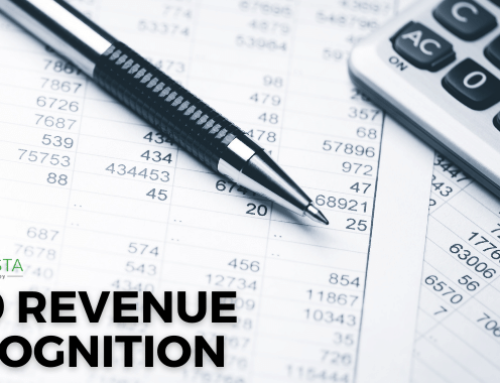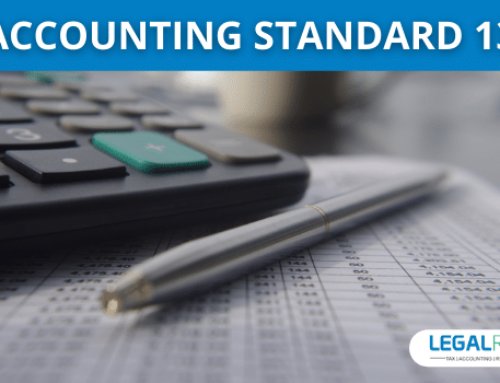An auditor is a qualified individual who examines and confirms the accuracy of financial documents and ensures that businesses adhere to tax regulations. Their main goal is to safeguard organizations from fraud and to draw attention to any inconsistencies in accounting systems, among other things. In general, being an auditor is not a stroll in the park. The auditor has placed himself, responsibilities to various parties, and the tasks that come with it, after being recognized as a certified professional. The credibility of the financial statements and the information they give is largely determined by the auditor’s view. There are various duties of an auditor that he must fulfill.
In comparison to unaudited financial statements, audited financial statements have a very high level of trustworthiness and validity.
Who is an Auditor?
Contents
In simple terms, an auditor is a person who is hired to examine a company’s books of accounts, as well as the authenticity and accuracy of the transactions recorded therein. He also provides an opinion on the financial statements’ overall view, i.e., if the statements present an accurate and fair picture of the entity’s financial situation.
Duties of an Auditor
The Companies Act of 2013, Section 143, defines the duties of an auditor. The Act describes the duties of an auditor in an easy-to-understand way, however the list provided is not full.
1. Prepare an Audit Report
- In simple terms, an audit report is an assessment of a company’s financial status. The auditor is in charge of creating an audit report based on the company’s financial accounts
- The books of accounts that he inspected should be kept in line with the applicable legislation.
- He must make certain that the financial statements adhere to the relevant provisions of the Companies Act 2013, relevant Accounting Standards, and so on.
- Furthermore, he must verify that the entity’s financial statements present a true and fair picture of the company’s financial situation. If necessary, form a negative opinion.
- Because it comprises the auditor’s opinion on the financial accounts, the auditor’s report has a high level of assurance and dependability. If the auditor believes the financial statements do not present a truthful and fair picture of the company’s financial situation, he has the right to issue an unfavourable opinion.
- In addition, if he is dissatisfied with the material presented and is unable to offer an appropriate opinion on the statements, he will provide an opinion disclaimer. A disclaimer of opinion basically states that the financial position of the organization cannot be ascertained due to a lack of information. It should be highlighted, however, that the reasons for such a negative view must also be stated in the report.
2. Make inquiries
- One of the auditor’s most significant responsibilities is to make questions when and when he sees fit. The following are a few of the inquiries:-
-Whether or if loans and advances granted on the basis of security are properly secured, and whether or whether the terms governing them are reasonable. If any personal expenses (i.e., spending not related to the business) are charged to the Revenue Account,
-Deposits are shown where loans and advances are made. Whether the financial statements are in accordance with the applicable accounting rules.
3. In the event of a branch audit, offer support.
If the auditor is a branch auditor rather than the company’s auditor, he will assist in the completion of the branch audit. He’ll write a report based on the branch’s accounts, which he’ll examine, and send it to the company’s auditor. This report will subsequently be incorporated into the company’s primary audit report by the company auditor. Furthermore, if he likes, he may disclose extracts of his working papers to the business auditor on request to assist in the audit.
4. Observe Auditing Standards
The Central Government issues the Auditing Standards in collaboration with the National Financial Reporting Authority. These standards make it easier and more accurate for the auditor to conduct his auditing tasks. It is the auditor’s responsibility to adhere to the standards while executing his tasks, as this boosts his efficiency.
5. Fraud detection and reporting
In general, the auditor may have suspicions about fraud within the organisation while doing his job, such as circumstances when the financial statements and data contained within don’t add up. If he finds himself in such a circumstance, he must disclose it to the Central Government as soon as possible and in the manner stipulated by the Act.
5. Follow the Codes of Ethics and the Code of Professional Conduct.
As a professional, the auditor must follow the Code of Ethics and the Code of Professional Conduct. Confidentiality and adequate care in the performance of his duties are two aspects of this. Professional skepticism is another crucial requirement. Simply said, the auditor must have a critical mind and be on the lookout for any mishaps, errors, and frauds in the financial accounts.
6. Assistance in an investigation
In the event that the company is under investigation, it is the auditor’s responsibility to support the officers as needed. As can be seen, the auditor’s responsibilities are quite varied, and they have a wide-ranging and far-reaching impact. When compared to ordinary unaudited financial accounts, the level of assurance supplied by a set of audited financial statements is significantly higher.
Also, read
The Companies (Audit and Auditors) Amendment Rules, 2018






